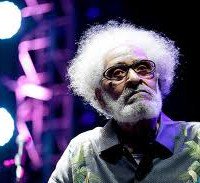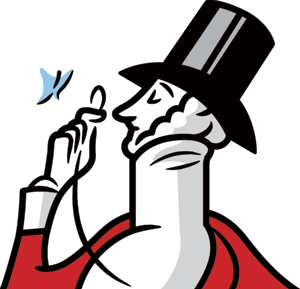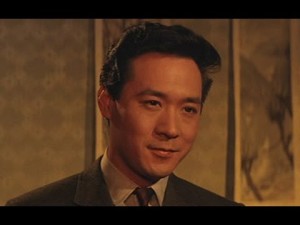
Back in the winter of 1993, I threw a newsroom tantrum over an article that appeared in Spy magazine under the title, “Admit It. Jazz Sucks.” Written by Joe Queenan, then riding the ascending curve as a go-to contrarian crank for major media outlets, the piece was a mordant rant against what he perceived as a stuffed-shirt conspiracy to shove jazz music down the zeitgeist’s collective throat.
Most readers, even those unsympathetic to Queenan’s sentiments (and no, he wasn’t kidding about those), found it relatively easy back then to take the whole thing as bilious faux-regular-guy philistinism and move on with their lives. But I’d come across this screed at a time when I was still struggling to convince my New York Newsday editors that jazz music deserved a broader, bigger regular presence in its pages. The last thing I needed to hear from a national magazine, ANY national magazine, was a brash, loud voice suggesting to the editors that, well, yeah, maybe we don’t need to deal with this intimidating, complicated, provocative music that isn’t even as popular as it used to be. In other words, I took the damn thing personally – and stomped my feet, bellowed out loud, pounded furniture, etc. to let everybody I worked for, and with, know of my purple-cheeked displeasure.
And another thing: How exactly did Queenan figure that jazz was this domineering entity imposing itself upon whatever culture he believed himself to represent? If anything, jazz was catching more hell from the mainstream than it was receiving. Why the hell didn’t Spy magazine pick on somebody/something its own size? On top of everything else, it wasn’t even funny. Or smart. Even one of my editors, a rock-and-roller who like to bait me with similar anti-jazz bombs, thought the piece was lame –and, therefore, not worth getting ulcers over.
Indeed, after I’d calmed down and realized that I was all alone not just in detesting, but even caring much about the piece, it occurred to me that the very lack of furor generated by the article was dismal proof that even if Queenan was right about this conspiracy, it was already failing.
So life did in fact go on: Spy eventually folded. Queenan wrote better, if more bilious pieces. Newsday ended its noble New York City-based experiment. And jazz still came out at the other end of the century barely breaking even in the music marketplace. So all I can say to all my friends and fellow-travelers in the jazz universe who’ve been seething since last week over what I’ve come to know as the “Unfunny Sonny” blog on The New Yorker’s web site is this: I been there already.

Briefly, for the rest of you: About a week ago (though it seems longer), a piece began circulating on the web under the New Yorker’s aegis under the title, “Sonny Rollins: In His Own Words.” Only it sure didn’t sound like Sonny Rollins; more like a whiny savant who likened the sound of a saxophone to a “scared pig” and doesn’t see the point of jazz and hates his whole life. “If I could do it all over again, I’d probably be a process server or an accountant. They make good money.” You get the idea. If you don’t, here’s the rest of it.
It now sounds weird, but more than a few people who first came across this thing on social media sites actually thought that this was Rollins’ voice. (I recall one musician first reacted by thinking that this outburst was the result of Rollins playing for too long with substandard backup musicians. Which was almost as funny – or not – as the piece itself.) As the civilized world now knows, a senior writer for The Onion named Django Gold wrote it and, as you’ll now notice, the blog now comes with disclaimers. Why? Partly because of this loud, resounding, universal outcry from the jazz musicians, fans and journalists that, collectively, made my office tantrum of twenty-one whole years ago seem like a sneeze in a noisy stadium. (By the way, after reading Gold’s piece again, make sure you watch this afterwards if only to make clearer whose voice is who’s.)
I suppose I, too, was more annoyed than amused by Gold’s little joke at jazz’s expense and the reasons are pretty much in line with those enumerated over the last few days. To wit:
1.) You mean The New Yorker no longer has the time or space to cover jazz on a regular basis and THIS is what they decide to contribute instead?
2.) Jazz is still fighting to hold on to its sliver of the music marketplace and here’s one of the leading publications in the country demeaning its greatest living improviser? How dare they! Would they do this to Tom Stoppard or Suzanne Farrell or anybody in opera?
3.) It’s not all that funny to begin with. Why waste the space, especially at jazz’s expense? I’m probably leaving out a few other complaints, but these three are among the more frequent, making it easier to take them each of them one at a time:
1.) That the New Yorker hasn’t bothered finding room for regular jazz coverage, especially after establishing a tradition for such through the late Whitney Balliett is, of course, an ongoing scandal. But no one else in the magazine world is bothering with it either. I can understand concerns among my fellow jazz lovers that the snide tone informing this parody will convince the music’s haters of their fine judgment and good taste. I don’t know. Outright jazz hate is annoying, but widespread indifference is worse. Does anyone besides me remember Stanley Crouch’s 2005 straight-ahead New Yorker profile of Rollins? Do I remember any profile of any jazz musician since then of similar heft and dimension? I do not. And whenever a newspaper or mainstream publication paid me to write about jazz, I often felt as if I were dropping pebbles down a deep, dark well waiting for the splash. I’d like to think the furor aroused by Gold’s prank would shame editors into changing this situation. I know better. They’d prefer more pranks. So does the Internet. So do the people who get caught up in the Internet. I play the sincerity card with jazz because I respect it too much to do otherwise. But when I praise Sonny Rollins, I’m basically telling people what they already know, whether they’ve heard him for themselves or not. Snide plays better than sincere. Or don’t you listen to “Wait, Wait, Don’t Tell Me” every week on NPR? Figured as much.
2.) Nevertheless, I, too, would rather read or write about the latest installment of Rollins’ “Road Shows” albums than see somebody reduce Sonny to the rough equivalent of a petulant preppie. I’ve often said that while critics sometimes pump up everything Rollins does with little discrimination, the public-at-large seriously underrates or altogether ignores his glorious inventiveness. (Those who wonder why everybody in jazz got so riled by Gold’s piece should immediately buy Road Shows, Vol. 3 or, to get it all over with, Saxophone Colossus.) On the other hand, Gold or his editors must already think that Rollins has the kind of heft and dimension as a figure to be poked at and hazed in the public square, which is kinda sorta a backhanded acknowledgment of his significance. Would somebody do the same to Tom Stoppard or Suzanne Farrell or anybody in opera? You bet your sweet ass somebody would, anybody would, early and often! To say that jazz can’t take even the most half-baked pies tossed at its kisser is to make it seem as reductive as snobs in the higher elevations of Culture Gulch believe it to be.
3.) Then, too, opera buffs and balletomanes in those higher elevations are often regarded as humorless wet blankets who can’t abide the cheap jokes as their expense. The jazz cognoscenti may even acknowledge the irony that its collective cri-de-coeur over Gold’s blog only confirms the outer world’s suspicions that we’re all a bunch of insular, thin-skinned spoilsports who can’t take a joke. But that the joke in question needed a disclaimer to chill out the complainers may prove that the joke in question wasn’t all that funny to begin with. For what it’s worth, it’s a helluva lot funnier than Queenan’s smug tirade, though, unlike Queenan, Gold doesn’t seem at all sure of what he’s skewering in the first place — and neither does the reader. It’s a piece interested more in striking a pose than making a point. It assumes an attitude about something that isn’t the least bit connected or concerned with what its satirizing; unlike Donald Barthelme’s New Yorker story, “The King of Jazz,” which was the kind of blithe-but-pointed mockery that only a true fan (which Barthelme was) could pull off. Nevertheless, given the new-school dynamics of media transactions, strike a pose conspicuously enough and most of the gawkers will believe you’ve made your point anyway. And while jazz fans are shamed by Gold, he’s not shamed at all. He’s hearing tinkling sounds – bells, coins — whenever somebody mentions his name. If taking Gold to task for demeaning jazz makes me look like a slow-burning Edgar Kennedy to his blithe Harpo Marx, I’d just as soon go back to bed and wait for the wind to die down.
All this said, I’m glad, and even proud, that jazz got on its hind legs and roared back at this squib. The furor wont raise the music’s profile any higher than it is now. Too many other things have to happen for that to change. But as with that Spy magazine assault long ago, the effects of which I think I’m finally over by now, jazz under whatever name in whatever state will go on, oblivious to whatever the lovers and haters say about it. As I said earlier: I been here before. So will the divine mysteries of music. And so, I trust, will writers who can riff, lick and even vogue better than…no, sorry. I’m not going to mention the name again. I’d rather give my remaining time to this guy –– and, just as I eventually did twenty years ago, move on.

So I watched The Maltese Falcon yesterday afternoon, partly in celebration of John Huston’s birthday, partly because I hadn’t seen it in a while. Its stock has risen and fallen with me over the decades, though never TOO low (or as low as it often fell with hard-core auteurists). Now I’m all grown-up and unequivocally accept it as a classic. But this time around, as I was watching Humphrey Bogart making his way from his office to his apartment and back again, I wasn’t thinking about him so much as I was thinking of Philip Seymour Hoffman’s star turn in A Most Wanted Man. And I realized, finally, why so many people who saw that movie are feeling even more desolated by Hoffman’s passing earlier this year.
Some perspective: Before Falcon, Bogart had been known primarily as a character actor specializing in bad-guy roles; most of them variations of Duke Mantee, the sneering fugitive killer from The Petrified Forest that established his name on stage and screen. As Sam Spade, Bogart carried some of the sinister aura he’d patented in his previous movies and was able to channel it into what Pauline Kael aptly described as an “ambiguous mixture of avarice and honor, sexuality and fear.” It was Bogart’s first “good-guy” role, though given Spade’s icy duplicity and casual cruelty one could more properly characterize it as anti-heroic, or “bad-good guy”. Nevertheless, the movie’s success made Warner Brothers and, by extension, the public regard this brooding, battered-looking fellow as someone who could be a romantic figure; a conflicted one at times, perhaps, but an enviably tough one for sure.
Philip Seymour Hoffman’s situation before Most Wanted Man was quite different from Bogart’s before Maltese Falcon. By the time he’d died of a heroin overdose this past February, Hoffman was regarded as one of our finest actors, perhaps, the greatest of his generation. His versatility won him acclaim, awards and a kind of stardom that hadn’t yet translated to heroic or romantic leads; mostly, he was cast as eccentric, sweet, awkward or malevolent characters. If Kael’s description of Bogart’s Spade could have been applied to any of Hoffman’s roles, it likely would have been Lancaster Dodd, the mercurial cult leader and title character of 2012’s The Master. It’s probable that after playing a such a magnetic composite of eccentricity, sweetness, awkwardness and malevolence Hoffman may have started wondering where else he could carry this trick bag and to what end.
So he began trying on some different wardrobe; first as a working-class mensch in God’s Pocket and as Most Wanted Man’s Gunther Bachmann, the rumpled German intelligence operative struggling to finesse the capture of a Muslim statesman suspected of funneling money to terrorists. Gunther is very much in the tradition of John Le Carre’s seedy spymasters; as with George Smiley, Gunther’s idea of getting results is to dig deep, stalk the edges, probe for soft spots and extract information as deftly as possible with no whistles and horns in sight. The strain of maintaining Gunther’s professional integrity shows in the way he wearily saunters into cafes and meeting rooms. Those working with or against Gunther’s tactics seem to have the edge because of their greater physical definition. Yet Gunther’s wooliness is deceptive, calculatedly so. Hoffman carries his character’s authority with a bruised, but stolid Old World dignity. You understand why his team will follow him everywhere and anywhere he takes them – and why his reluctant recruits end up trusting him despite their most urgent reservations.
As for the romantic part, there’s a moment, only a moment, where the possibilities make themselves apparent. It comes when Gunther, in an attempt to conceal his presence from somebody on an illuminated nighttime street, grabs his subordinate Irma (Nina Hoss) and embraces her in a faux-make-out clinch. When they break off, Irma’s hand lingers gently on Gunther’s back. The moment passes, but it’s one of the few times in director Anton Corbijn’s thriller where you’re aware of something going on just beyond the narrative’s whirring machinery.
You’re also aware of something happening with Hoffman’s screen image beyond his already-legendary chameleon chops. You think of the possibilities opened up by having someone as unkempt as a fraternity hall closet after a beer party somehow embody an heroic archetype that movie audiences throughout the world could embrace as cozily as Irma does Gunther. I’m not saying Hoffman’s performance in Most Wanted Man would have allowed him to pursue his own Casablanca or To Have and Have Not. But, putting it as painlessly as possible, it would have been great fun to see him go for it.

The recent death of James Shigeta at 85 evokes a different, but no less poignant sense of lost or forsaken possibilities. Shigeta, as many knowing and respectful tributes have mentioned, had a long and influential career as both dramatic actor and musical-comedy performer. Blessed with a deep, melodious speaking voice, Shigeta broke down racial barriers from the start of his career, playing a police detective in Samuel Fuller’s iconoclastic 1959 thriller, The Crimson Kimino, in which his character becomes romantically involved with Victoria Hall’s imperiled Caucasian witness.
It wouldn’t be the only time he’d played someone in an interracial romance or for that matter, someone in a romantic lead. And it seemed for a while as though his magnetism and grace would pay off in major stardom despite the compartments Hollywood still tended to place roles for Asian actors.
But Shigeta, though always in demand in movies and television, never became a major star; not even during a twenty-year span – the sixties and seventies – when the nature of what it meant to be a movie star was expanding enough to encompass the previously non-traditional likes of Sidney Poitier, Barbra Streisand and Dustin Hoffman. Maybe the movies couldn’t do it, but television was, and is, a different proposition, more open to tweaking expectations in the name of getting attention – and ratings.
Knowing Shigeta was originally from Hawaii made me imagine a bit of alternative history that, had it actually come to pass, might have helped make a different world. It certainly would have made for an obituary different from the ones widely circulated late last month.
So let’s all imagine, shall we?
LOS ANGELES, July 29, 2014 – James Shigeta, the groundbreaking Asian-American leading man, who achieved his greatest success as star of the long-running CBS police series, “Hawaii Five-O”, died Monday of pulmonary failure. He was 85.
Shigeta, born in what was then the Hawaii territory of the United States to Asian American parents, achieved early success as both a movie actor and as a singer who performed in the 1960 film adaptation of “Flower Drum Song,” the Rodgers-and-Hammerstein musical comedy about arranged marriages among Chinese-Americans.
But it was the role of Detective Lt. Rick Nakamura on “Hawaii Five-O” that made Shigeta a household name in America and throughout the world. In the process, it accelerated the broadening presence of non-white actors on the big and small screens in roles that traditionally went to whites.
“I will always be grateful to Rick Nakamura and everything he gave to me,” Shigeta said in later years. “Once you’ve done TV for as long as I have, you’re never a stranger, no matter where you go in the world.”
It very nearly didn’t happen, according to the late Leonard Freeman, who created and produced “Hawaii Five-O.” Back in 1967, when the idea for a series about an elite crime-fighting unit based in Honolulu reached the development stage, Freeman recalls that while casting Asian actors as cast regulars was never in doubt, the notion of the team’s leader being Asian met with resistance from CBS executives.
“They were adamant,” Freeman recalled in 1971 when the series was in its third season. “But I kept at it, telling them that, after all, we were in a time when Bill Cosby was winning Emmys as a lead character on ‘I Spy.’ But the network was certain that people weren’t ready for an Asian cop leading a series. I kept telling them that just the curiosity of the idea, along with all that beautiful scenery, would give them everything they wanted.”
Shigeta, who jumped at the chance for steady work in the land of his birth, made his own pitch to CBS executives. Apparently that was all it took – and the rest was television history, though, as Shigeta recalled later, it took a while for the show and his stardom to take hold.
“An Asian leading man on prime-time television wasn’t exactly business as usual in 1968,” he told a Time magazine interviewer in 1975. “In fact, there were so many people [at CBS] who were so sure it wouldn’t take that they were already talking about midseason replacements the same m0nth we went on the air. I got so depressed by the low expectations that by season’s end, I’d prepare for the hammer to fall and I’d start trying to figure out what to do with my life afterwards.
“Then we got renewed. But we carried those same low expectations into season two, even with all the awards we were getting. And I’d get that same sinking feeling.. Seven years later, we’re still around, so I guess everybody’s stopped worrying.”
Eventually, “Hawaii Five-O” ran twelve seasons, from 1968 to 1980. Shigeta’s good looks, silkily resonant voice and ramrod presence allowed Rick Nakamura to become as familiar to TV viewers as James Arness’ Matt Dillon from CBS’ comparably durable “Gunsmoke.” Backed by a supporting cast that included James MacArthur, Kam Fong and Gilbert Lani Kahui , whose professional name was Zulu, Shigeta’s Nakamura conveyed a deceptively impassive demeanor magnetic enough to establish what TV critic Ken Tucker would later characterize as a “paradigm of absolute cool” that actors of all nationalities would try duplicating with mixed results.
What helped seal Nakamura’s immortality was the way Shigeta would reliably intone, at or near the end of each episode, “Book ‘em, Dann-O!” to MacArthur’s Danny Williams with icy resolve.
Shigeta was nominated for Emmys six times, winning for Best Lead Actor in a Dramatic Series in 1969, 1970 and 1973. Once the show achieved steady success, Shigeta used his growing influence to ensure that other non-white actors would be given roles that would not be denigrating . He especially made sure that all his co-stars received extensive screen time, even their own episodes. MacArthur won a Best Supporting Actor Emmy in 1971 and Kahui and Fong credit their exposure on “Hawaii Five-O” for securing roles in major motion pictures, including 1988’s “Die Hard” in which they played Asian businessmen who sacrifice their lives for hostages.
MacArthur, in accepting his Emmy, credited Shigeta for the collegial atmosphere he helped sustain throughout the show’s run. “A great actor without a big ego. He’s a freak of nature!”
Shigeta parlayed his TV notoriety into a modestly successful career as a nightclub singer and recording artist. He was always puckishly proud that his 1971 version of Rod McKuen’s “Cycles” beat out Frank Sinatra’s 1968 version by reaching number 15 on the Billboard pop charts. “Something else,” he noted wryly in the Time interview, “to thank Rick Nakamura for.” (For his part, Sinatra held no grudges against Shigeta’s coup, saying, “That’s what happens when you’ve been out-acted by a fine actor.”)
By 1974, Shigeta had acquired enough clout with both the show’s producers and the network to get them to agree to casting his “Flower Drum Song” co-star Nancy Kwan as a series semi-regular. Her role as enigmatic federal agent Joanna Ming was considered as much a groundbreaker in series television as Shigeta’s and in 1978 her character was “spun off” into her own CBS action series, “Undercover,” that lasted until 1981.
Shigeta recalled being exhausted by that last season of 1979-80 and took a six-year leave-of-absence from show business. Hawaii Democrats proposed that he run for governor in 1986. Though intrigued, Shigeta demurred, insisting that, however much he wanted to effect change for people-of-color, he could do the most good in his chosen profession. Instead, he agreed to ease back into the medium in a recurring role on “L.A. Law” as Judge Danforth Akiyoshi.
He admitted that it was “funny, at first” when actors on the series would insist on muttering, “Book ‘em, Dann-O” between takes. “I’d always tell them they didn’t quite have it right,” he said. “And they were always crestfallen when I did. Gosh, I didn’t think they’d take it so personally.””




